What Happens If You Can’t Sleep During a Sleep Study?
Sleep studies are tests specifically designed to diagnose certain sleep disorders. Many are done in controlled facilities like a sleep lab or hospital. In some situations, an at-home sleep study is ordered. These are often less expensive but also less thorough.
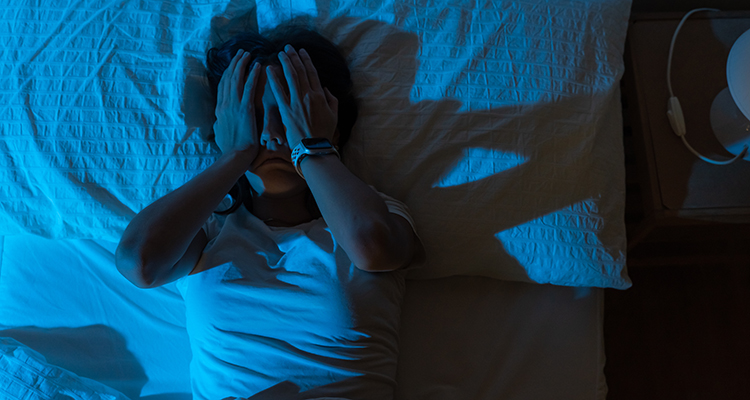
Sleep studies are done overnight in a controlled environment so that doctors and technicians can monitor and observe your brain and body function while at rest. But what happens if you can’t sleep during a sleep study? What does it do to the results and will you have to retake it?
In this article, you’ll learn what happens if you can’t sleep during a sleep study, plus tips for having a successful experience and how to prepare.
Content
What to Expect from Your Sleep Study
The more you know about what a sleep study involves, the more relaxed and less stressed you’ll likely be about the entire experience. Entering the sleep study in a state of relaxation can help promote sleep and ensure more thorough and accurate results.

In short, a sleep study is an overnight exam that monitors and records brain and body activity while you sleep. By measuring your brain waves and observing how your body moves and responds to certain stimuli, technicians and sleep specialists can diagnose various sleep disorders. These include everything from sleep apnea and restless leg syndrome (RLS) to narcolepsy and REM sleep behavior disorder.
During the sleep study, technicians will place small adhesive sensors on your head and body. These sensors are connected by wires to a nearby computer used to monitor and record your activity. The wires offer plenty of slack so you can freely move, turn over, and reposition yourself while sleeping.
What Happens if You Can’t Sleep During a Sleep Study?
The main purpose of a sleep study is for doctors to have the unique opportunity to observe you while you’re sleeping. But what happens if your sleep issues involve insomnia or the inability to fall asleep? Or, perhaps your anxiety over the test itself makes it difficult or impossible to fall asleep.
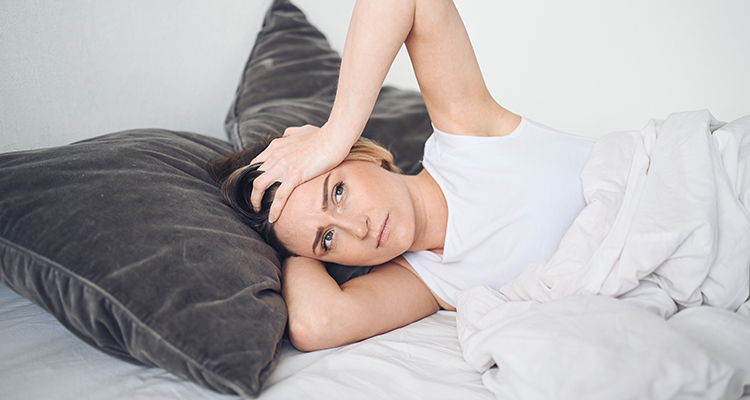
If you have some of these concerns, you aren’t alone. Here are a few tips for preventing sleeplessness during your study and ways to relax and prepare.
Reduce Stress Related to the Study Itself
Oftentimes, the one thing someone tells you not to do or think about is the only thing you can focus on. Case in point – you need to sleep during a sleep study, therefore, you may find it increasingly difficult to actually fall asleep. Many people feel pressured to fall asleep or are uncomfortable being observed by strangers (even though they’re trained professionals). You may also find it difficult to fall asleep in unfamiliar surroundings like a sleep laboratory or study center.
The more stressed and anxious you feel about falling asleep, the harder it’ll be. The best way to prevent sleeplessness is to clear your mind and reduce anxiety before you get there. Try taking deep breaths or performing a short meditation or mindfulness exercise. Give yourself a pep talk about the sleep study. Remind yourself that you’re safe and comfortable. You can also calm your nerves by telling yourself that the results of this sleep study could help cure, or at least ease, your sleep troubles. This thought alone should be exciting and help you adopt a more positive and accepting mind frame.
Find a Comfortable Sleep Position
This can be tricky during a sleep study, especially if you’re not used to sleeping with any physical distractions like a sleep mask or CPAP machine for sleep apnea. Even though the sensors and wires used during a sleep study are designed to be comfortable and flexible, they can be a bit cumbersome and hard to get used to.
Try finding a comfortable sleep position where the testing devices cause minimal distraction or hindrance. The good news is, this can be achieved in almost any sleep position. You’re not required to lie flat on your back during a sleep study. Instead, settle into the sleep position you’re accustomed to and find most relaxing. This could be either side, your back or your belly. The technicians will help you get comfortable and adjust the wires and sensors as needed.
Get Acclimated to Your Surroundings
When most people think of a sleep study, they imagine themselves strapped to a hospital bed with wires coming off their bodies. You may also picture bright lights and a sterile, almost hostile environment. This simply isn’t the case! Most sleep centers and labs go to great lengths to create a comfortable sleep environment for your study. After all, if you can’t fall asleep, they can’t do their jobs.
When you first arrive, take time to get acclimated to your surroundings. If you need extra blankets or pillows, don’t be afraid to ask for them. Test out the bed and make sure it’s comfortable. Once the sleep study begins, avoid using your phone or turning on any lights – even if you wake up in the middle of the night. The blue light from these digital devices can interfere with your ability to fall back asleep and could alter the study’s results and outcome.
Take a Sleep Pill
Under certain circumstances, the technicians may offer you a sleeping pill or natural supplement to facilitate the process. Melatonin is an effective, natural sleep aid that can make it easier for you to relax and fall asleep. Your body naturally produces this hormone at night, starting the process from wakefulness to sleep.
Depending on the reason for the sleep study, your medical history, and the doctor’s discretion, other, stronger sleep medications may be given. These include Benadryl and other over-the-counter medications.
A Few Hours May Be Enough
Although it’s recommended adults get between 7 and 9 hours of sleep per night, most doctors don’t need to observe you for this long. Even if you only sleep soundly for a few hours, this may be enough time for technicians to record and calculate the data they need.
Reschedule
If all else fails and you simply can’t sleep during your sleep study, the lab or sleep center may try to reschedule it. Your doctor may also recommend an at-home study. Many patients report feeling more comfortable and at ease sleeping in their own beds. Although at-home sleep studies aren’t suitable for every patient and may fail to diagnose certain types of sleep disorders, it’s worth asking your doctor if you’re concerned or overly anxious about sleeping in a hospital or exam room.
In the event that your sleep study needs to be rescheduled, you can take certain measures to relax and prepare better the next time.
How to Prepare for a Sleep Study
Speaking of preparing, this is a key part of getting the most out of your sleep study and the best way to avoid the need for future tests or rescheduling your exam.
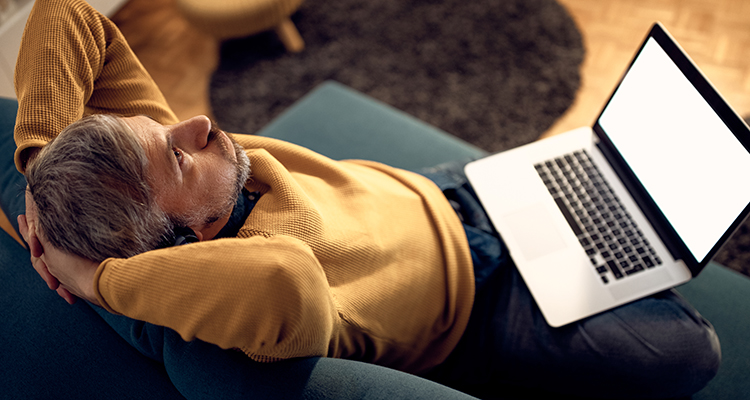
Keep Things as “Normal” as Possible
Sleep studies allow doctors and technicians to monitor your typical sleep habits. This involves creating a situation for sleep that is closest to your natural routine. For example, if you work night shifts and sleep during the day, your sleep study should also be conducted during the daytime hours.
If there are certain routines you perform before bed each night as part of your wind-down routine (and the sleep center can accommodate these), by all means, do them! This includes things like reading a book, journaling or meditating. Pack an overnight bag that contains all of your favorite items, as well. This can include pajamas, a pillow, and a change of clothes for the next day. If you normally take medications before bed, bring these with you as well. In most cases, the doctor will still want you to take your routine medications before the study begins.
The Day of the Study
As important as it is to maintain a normal routine prior to a sleep study, there are also a few things you can do the day of your test to make it easier to fall and stay asleep. For example, set your morning alarm a little earlier and avoid taking naps during the day or the day before. These small changes can make a big impact on the day of your study. Just be mindful not to deprive yourself of sleep. Sometimes, a lack of sleep can have adverse effects and you may find yourself feeling agitated and alert instead of calm and sleepy.
Avoid caffeine the morning of your sleep study. Instead of having your typical cup of Joe to start the day, opt for a soothing cup of decaffeinated or herbal tea. Follow your normal morning routine, including exercising or hitting the gym. If you don’t normally exercise, now might be a good time to start! Even a brisk morning walk or jog could set you on the right path for a successful sleep study. Plus, exercise releases feel-good endorphins like dopamine and serotonin which can help regulate your mood and may reduce stress prior to the test.
Tips for Taking an At-Home Sleep Test
While most sleep studies are done in a controlled environment like a sleep center or laboratory, you may be asked to conduct your own sleep study at home. The same rules apply here in terms of reducing stress and creating a calming atmosphere both during and leading up to the time you go to bed.
Start your nighttime routine at the same time as you usually would and try getting into bed on time as well. If you think it’ll help, stay up a little bit later than usual so that you’re extra sleepy before going to bed. Eliminate light and noise distractions using room darkening shades, a sleep mask, a sound machine, or sleep headphones. Just keep in mind that wearing some of these accessories may be difficult once you attach the wires and sensors as instructed.
Other Tips for a Successful Sleep Study
Undergoing a sleep study shouldn’t be a stressful experience. Armed with the right information and mindset, you should be able to fall asleep and help technicians gather the information they need to accurately diagnose your sleep disorder.
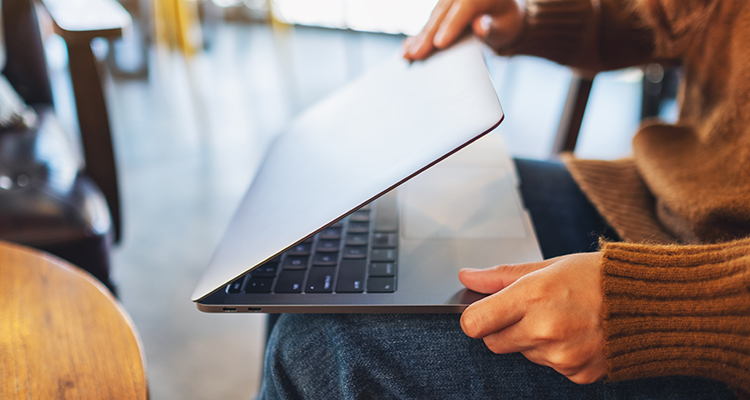
Here are a few more tips to help you prepare for the big day!
Understand the Type of Sleep Study
Not all sleep studies are created equal. Different tests are used to diagnose different sleep disorders. Your doctor will choose the appropriate test based on your symptoms and individual sleep needs. The more you know about the test, the more comfortable you’ll feel the day of. You may also feel less anxious and more relaxed.
Here are some of the most common types of sleep studies you may undergo.
- Polysomnogram (PSG) – An overnight sleep study that measures your brain waves, heart rate, heart rhythm, blood oxygen levels, breathing, movement, and any other disruptive behaviors that may affect your sleep quality.
- Continuous Positive Airway Pressure (CPAP) study – This is one of the most common types of sleep tests and is used for patients who either have or believe they have sleep apnea. During this study, technicians will test how you respond to the machine’s single pressure levels and if this is the best treatment option for your condition.
- Bilevel positive airway pressure (BiPAP) titration study – This test is designed for patients in need of a CPAP machine for sleep apnea or looking for alternatives to a traditional CPAP machine. Some patients respond better to different pressure strengths, which is a feature not offered by most CPAP machines. During this overnight sleep study, technicians will use a BiPAP device to test your body’s response to different breathing patterns.
- Multiple Sleep Latency Test (MSLT) – This test is used to treat patients suffering from daytime fatigue. An MSLT helps determine how fast you fall asleep and at what point you enter a REM sleep stage, which some patients never do. An MSLT sleep study is commonly used for patients exhibiting symptoms of narcolepsy.
- Maintenance of Wakefulness Test (MWT) – This is one of the only sleep studies that is conducted during the day. An MWT is used to measure daytime drowsiness, alertness, and how long a person remains awake during a set period of time.
Ask Questions
Another way to feel relaxed and prepared for your sleep study is to ask plenty of questions. Don’t be afraid to ask your doctor prior to test day and the technicians on the day of your test. Their job is to make you feel comfortable and at ease throughout the entire process.
Understand Your Symptoms
Not all sleep disturbances or issues require a sleep study. Sometimes, simply discussing your symptoms with your doctor is enough. Keep a list of your symptoms and a sleep diary that details exactly how you feel both before bed and in the morning, how long you slept for, and how many times you woke up. After a few weeks, take a closer look at this diary and see which symptoms are most persistent. Consider external factors that could be contributing to your sleep troubles like an over stimulating environment, your diet, lack of exercise, stress, or other medical conditions. Bring this information and any concerns you have to your doctor to determine if a sleep study is in order.
Improving Your Sleep Quality Could Eliminate the Need for a Sleep Study
If you’re anxious over the idea of undergoing a sleep study, you may be able to avoid it. Making small lifestyle changes that are said to improve overall sleep quality, duration, and sleep latency (the time it takes you to fall asleep) could ease your symptoms and eliminate the need for a study all together.
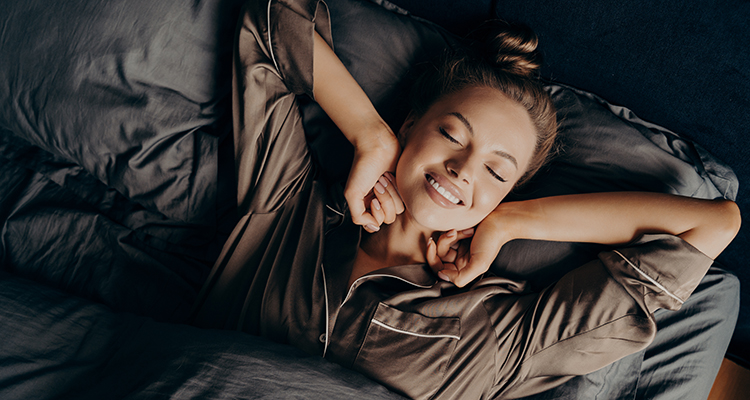
Before you make this determination on your own, consult with a healthcare professional. In the meantime, visit our blog for more tips on improving sleep quality, and click here to learn more about how Somnus Therapy’s online sleep therapy program can help.













